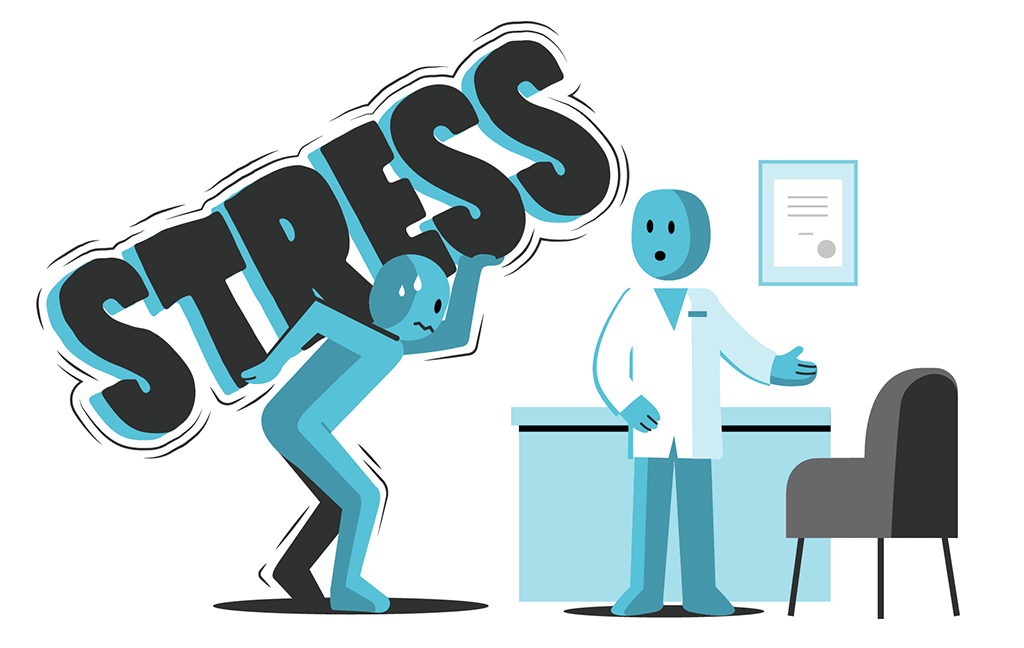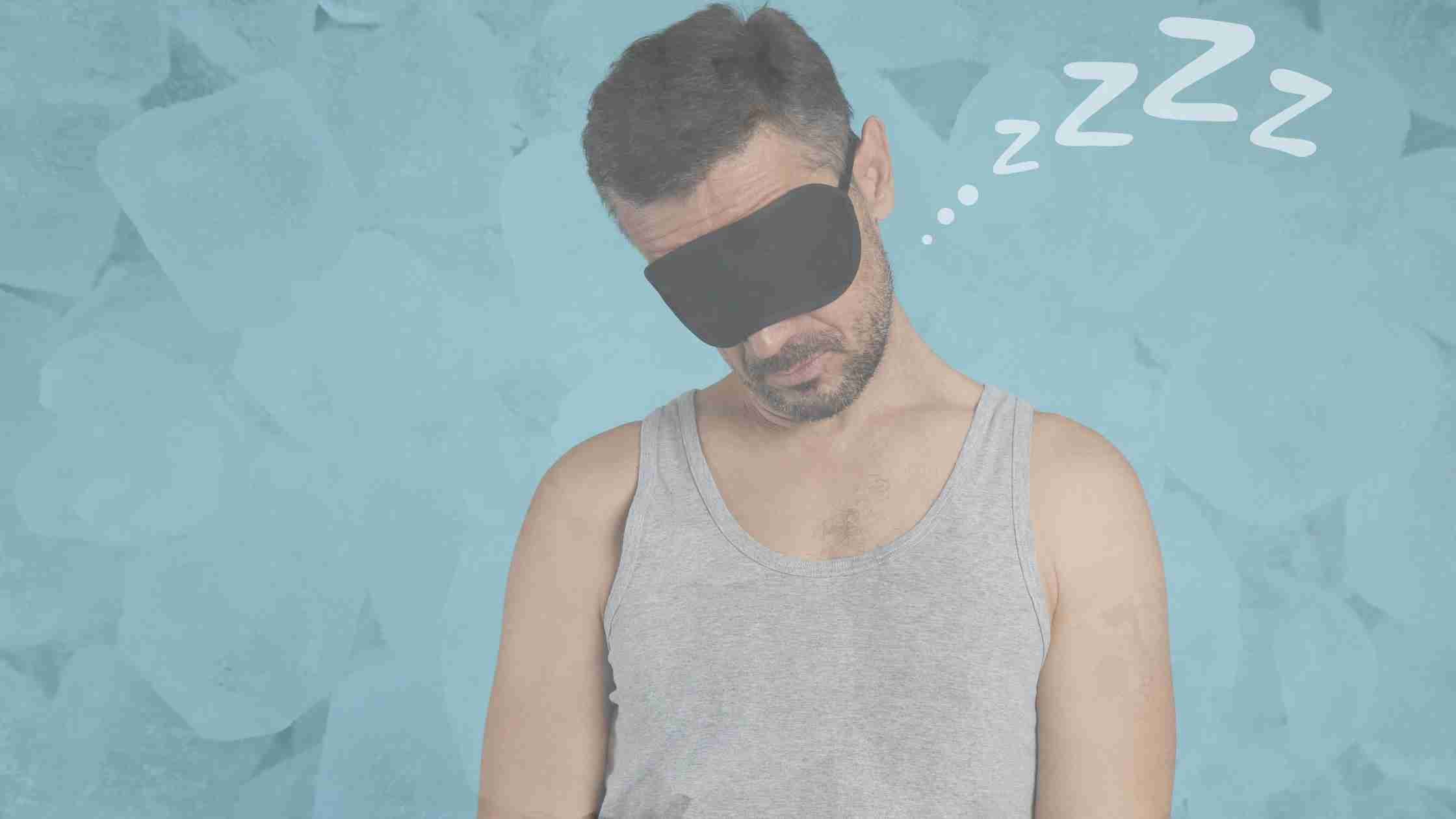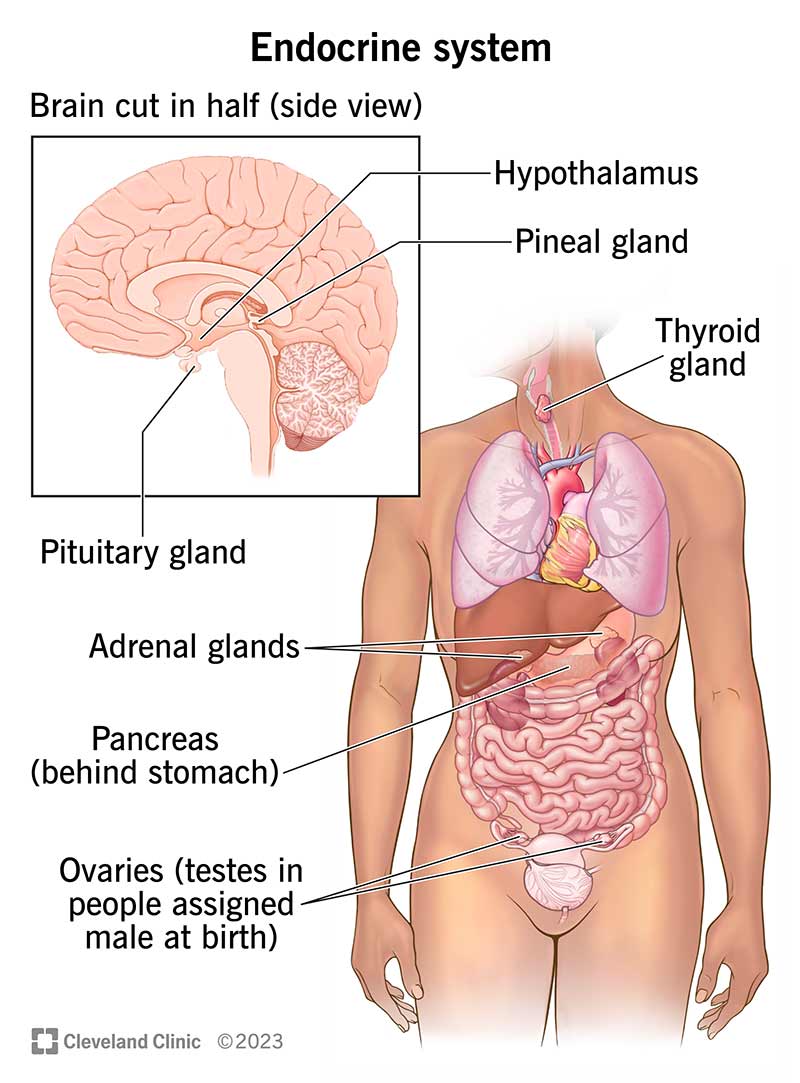In 2019, 970 million people globally were living with a mental disorder, with anxiety and depression the most common, according to the World Health Organization. Forbes researchers say 21 million adults are living with depression in the U.S. alone. I mean, WHAT??! For self-check, Mental health includes your emotional, psychological, and social well-being. It affects how you think, feel, and act and helps determine how you relate to others and make choices. Essentially, it’s responsible for the quality of life you’re leading right now.
Understanding how ice therapy works is key. Our Health Investigations Agents [HIA] spent weeks researching the subject Today, the HIA will walk you through various subtopics that encompass different aspects of the practice and its potential effects on your mental well-being. Make a coffee, grab a pen and notebook, and here’s our findings:
Physiological Effects

If you’ve been following our blog, you’ll know that ice baths are often hailed as a remedy for sore muscles and touted as a recovery tool, not just by us but also by everyone who cares about people’s wellness as much as we do and has the nerve to find out. To unravel the mysteries behind this holy practice, let's comb through the science, statistics, and diverse standpoints that summarize the role of ice baths in influencing the body's complex mechanisms.
Vasoconstriction and Vasodilation:
Cold exposure triggers vasoconstriction, a mechanism where blood vessels narrow to conserve heat. Once the body resurfaces from its cold depths, vasodilation takes place, causing your blood vessels to widen. What can this do to a normal person like yourself? A study in the International Journal of Sports Medicine (2016) showcases this dance, highlighting the dynamic vascular response to cold water immersion.1
Endorphin Release and Mood Improvement:
Cold-plunge bathing is not just a physical experience; it's a neurochemical venture of varied proportions. Cold exposure prompts the release of endorphins, otherwise known as the body's natural mood boosters. Our HIA investigators found a link between cold exposure and endorphin release in the International Journal of Molecular Science: Cold-induced beta-endorphin release in humans2 shedding light on the potential mental health benefits. More of it can be found here.
Inflammatory Modulation:
One of the popular benefits of ice baths peddled by those who’ve tried and/or researched them, a.k.a. DDW, is their otherworldly ability to reduce inflammation. A meta-analysis published in the Cochrane Database of Systematic Reviews (2012)3 even digs deeper into the impact of cold-water immersion on muscle soreness after exercise, offering insights into the anti-inflammatory effects.
Inflammation and Recovery Nexus:
Inflammation is a natural response to exercise-induced muscle damage, and get this, it’s a double-edged sword. While it signals the body to initiate repair, an excess of it can impede recovery. Cold exposure, as explored in a study in the European Journal of Applied Physiology (2011)4, intervenes by modulating inflammatory responses, potentially expediting the recovery process.
Cellular Metabolism and Caloric Expenditure:
Cold exposure sets off a composed relationship within our cells, a metabolic tango, as sophisticatedly covered in a comprehensive review featured in the Journal of Clinical Medicine (2019)5. This scholarly work probes into the complex metabolic implications of subjecting your body to cold, shedding light on the nuanced interplay that contributes not only to caloric spending but also to weight management.
Neurological Impact

You can’t talk about ice therapy and mental health, and you don’t talk about this. Let’s first examine the interplay between cold exposure, neurotransmitters, and the chemicals influencing our mood in a way that doesn’t fry your brains.
Impact of Cold Exposure on Your Nervous System:
Vagal Nerve Stimulation:
Recent discoveries by our HIA show that cold exposure has been linked to the stimulation of the vagus nerve, a crucial component of the parasympathetic nervous system. The parasympathetic nervous system is like the body's cool-down crew. After a tough workout, for example, you need time to relax and catch your breath. That's where the parasympathetic system steps in—to slow down your heart rate, to help with digestion, and basically to tell your body, "Bro, it's time to chill." When you're in a state of calm, it's thanks to the parasympathetic system doing its job. You can see why stimulating this part of your body improves your mental health. And cold exposure does this to a tee.
This connection is explored in a study published in the International Journal of Psychophysiology (2014)6, shedding light on how cold exposure may influence autonomic nervous system activity.
Neurotransmitter Release:
Cold exposure also prompts the release of neurotransmitters, the chemical messengers facilitating communication between nerve cells. Research in the European Journal of Applied Physiology (2011)7 investigates the impact of cold water immersion on neurotransmitter release, contributing to our understanding of the neurobiological effects of cold exposure.
Potential Effects on Neurotransmitters and Mood-Regulating Chemicals

Serotonin and endorphin release:
Cold therapy has been associated with increased levels of serotonin, a neurotransmitter linked to mood regulation. But that’s not all the magic there is; the release of endorphins, the body's natural feel-good chemicals, during an ice plunge is explored in a study from the Journal of Behavioral Medicine (2008)8. These neurochemical changes offer insights into how cold exposure might influence mood.
Dopaminergic System Modulation:
The dopaminergic system, recognized as the neural architect of pleasure and reward, is a key player in the complex effects triggered by exposure to cold. When we subject ourselves to the coldness, it appears that the dopaminergic system creates an interplay between that sensation of cold and the potential for a heightened sense of well-being. A study published in PLOS ONE (2017) investigates how cold water immersion affects the dopaminergic system, providing valuable information on the potential mood-related effects of cold exposure.
Beta-Endorphin Release and Stress Reduction:
Beta-endorphin release, another facet of the neurochemical response to cold exposure, is explored in a study from the Journal of Behavioral Medicine (2008). The impact of cold exposure on beta-endorphin levels, like earlier hinted on, is akin to deciphering the inner workings of stress reduction mechanisms linked to this practice. It's like peeling back the layers of a complex puzzle, each layer adding to our understanding of how the cold exposure contributes to your body's ability to alleviate stress.
Stress Reduction

Investigations into the relationship between cold exposure and stress reduction highlight the stimulation of the vagus nerve, pivotal for autonomic balance. The increased vagal tone associated with cold exposure, as explored in a study from the International Journal of Psychophysiology (2014)10, suggests a potential mechanism for mitigating stress. Additionally, the neurochemical responses triggered by cold exposure, including the release of endorphins, offer insights into the interaction between cold exposure and mood improvement, as also seen in research from the Journal of Behavioral Medicine (2008).
In terms of managing chronic stress and anxiety, engaging in ice baths nurtures mindfulness and springiness over time, empowering you to better cope with stress and anxiety.
Moreover, the temperature-induced relaxation responses associated with cold exposure, as outlined in the International Journal of Psychophysiology (2014), suggest a broader impact on the nervous system. While the modulation of the endocrine system, particularly stress hormones like cortisol, warrants further research, the current landscape hints at the multifaceted potential of cold exposure in promoting mental well-being. It's essential to approach ice baths gradually and mindfully, incorporating them into a comprehensive self-care routine alongside other stress-management techniques. Consulting with a healthcare professional is recommended, especially for those new to cold therapy or with underlying health conditions
Cognitive Benefits

To save you some time, let’s offer just a glimpse into ice therapy’s potential to improve your cognitive function. Understanding just how it influences cognitive areas such as your concentration, focus, and mental clarity unknots things even us found dumbfounding about our mental acuity.
How Cold Exposure May Improve Cognitive Function:
Cold-Induced Alertness:
Cold therapy has been associated with heightened alertness and increased arousal, potentially affecting your cognitive performance. A study published in the International Journal of Psychophysiology (2006) explores the acute effects of cold exposure on cognitive function, providing insights into the dynamic interplay between temperature and cognitive processes.
Neurotransmitter Modulation:
Cold exposure, such as ice baths, can influence neurotransmitter release and may have implications for cognitive function. Neurotransmitters are chemical messengers that your body can't function without. Their job is to carry chemical signals (“messages”) from one neuron (nerve cell) to the next target cell. The next target cell can be another nerve cell, a muscle cell or a gland. The European Journal of Applied Physiology (2011) explores the neurobiological responses to water immersion, providing insights into the relationship between cold exposure and cognitive processes that we think you might want to dig deeper into. Understanding these neurobiological responses is crucial for comprehensively assessing the effects of cold exposure on your cognitive performance.
The Impact of Ice Therapy on Concentration, Focus, and Mental Clarity:

Cognitive Performance and Cold Water Immersion:
The influence cold water plunging has on your cognitive performance, particularly in tasks requiring sustained attention and vigilance, like that important stuff you do at work, is a subject of study. However, research published in Aviation, Space, and Environmental Medicine (2007) suggests that cold water immersion has a tremendous effect on cognitive tasks, providing valuable insights into the potential benefits of ice baths on concentration and focus.
Executive Functions and Cooling Effects:
The term ‟executive functions” refers to the higher-level cognitive skills you use to control and coordinate your other cognitive abilities and behaviors. The cooling effects induced by cold exposure may extend to greater executive functions, including decision-making and problem-solving. While further research is needed in this area, the existing landscape, as outlined in studies like the one from the International Journal of Psychophysiology (2006), suggests that cold exposure may be a novel avenue for optimizing cognitive performance.
Sleep Quality

Quality sleep and mental health are deeply interconnected, with each influencing the other significantly. Restorative sleep provides an opportunity for our minds to recharge, consolidate memories, and process emotions, contributing to overall mental well-being. Learn more here. Conversely and at the risk of stating the obvious, disruptions in sleep patterns can aggravate mental health symptoms, leading to increased irritability, difficulty concentrating at your workplace, and heightened emotional reactivity. Now that we know that quality sleep is important, how does ice therapy help?
The Connection Between Ice Baths and Improved Sleep
Temperature Regulation and Sleep Architecture:
Cold exposure has been associated with the regulation of core body temperature, a crucial element in the niceties of sleep architecture. Inquiries, such as a study in the journal Nature and Science of Sleep (2019)12, examines the impact of temperature modulation on sleep quality, shedding light on the potential role of activities like ice baths in promoting better sleep.
Thermogenic Response and Sleep Induction:
Cold exposure stimulates the secretion of noradrenaline from the sympathetic nervous system, leading to the activation of adrenergic receptors and the stimulation of the thermogenic response in adipocytes. The thermogenic response induced by cold exposure may play a role in sleep induction. Understanding how the body's response to cold exposure influences the initiation of sleep provides insights into the dynamics of this relationship. While further research is needed and indeed taking place, existing studies, including those in the Journal of Clinical Sleep Medicine (2015), offer glimpses into the potential of cold exposure in promoting better sleep. Link
How Cold Exposure Might Contribute to Better Sleep Patterns and Insomnia Relief

Cold exposure shows potential in influencing various factors related to sleep quality. Firstly, it appears that cold therapy might influence the production of melatonin, the hormone that regulates your sleep-wake cycle. While more research is needed to confirm this, there's a suggestion that cold exposure could aid in managing insomnia by simply adjusting melatonin levels. You can take my word for it or do some digging yourself. Resources to get you started are at the end of this write up.
Also, that relaxation response triggered by cold exposure, coupled with stress reduction we already talked about, could be beneficial for promoting better sleep patterns. Studies have indicated that activities like ice baths could serve as holistic methods to reducing your stress levels and facilitating relaxation, which could contribute to improved sleep quality and consequently, your life as a whole. You know these things.
Additionally, the impact of cold exposure on body temperature dynamics is worth mentioning. It's suggested that by modulating body temperature, cold exposure might facilitate a smoother transition into sleep. Some of the cold plunge baths clients have said as much.
Hormonal Responses
Cold therapy not only confronts the body but also engages a subtle interaction with key hormones like cortisol and adrenaline. Adrenaline makes the heart beat faster, causes blood pressure to go up and gives you more energy. Cortisol, the primary stress hormone, increases sugar, also called glucose, in the bloodstream, enhances the brain's use of glucose and increases the availability of substances in the body that repair tissues. Research, such as a study from the European Journal of Applied Physiology (2011), suggests that ice baths may play a role in stress hormone regulation, particularly in modulating cortisol levels. The study explores the effects of water immersion on post-exercise recovery, expounding on the cold therapy’s ability to influence the dynamics of cortisol, a hormone intricately tied to the stress response. Another aspect unfolds in the hormonal responses induced by ice baths, as studied in the International Journal of Sports Medicine (2012). This research explores the immediate effects of cold water immersion on cortisol levels, adding to the understanding of how ice baths may shape hormonal responses during recovery.
The adrenaline-fueled side of the story is covered by studies such as the one published in PLOS ONE (2017). Here, the release of adrenaline in response to cold water immersion is detailed to a tee. The broader orchestration of stress hormones, including adrenaline, is further explored in the European Journal of Applied Physiology (2011). In essence, the hormonal dynamics set in motion by ice baths add layers to the physiological story, suggesting that the benefits of this cold practice extend beyond the immediate sensory experience to the regulation of stress hormones in your body.
Comparisons with Other Therapies

Cold therapy, encompassing techniques like ice baths, cryotherapy, and cold showers, has garnered attention for its potential mental health benefits. While ice baths involve submerging oneself in icy water, other methods like cryotherapy involve exposure to extremely cold air for short periods. Research suggests that cold therapy can trigger the release of endorphins, dopamine, and norepinephrine, neurotransmitters associated with mood regulation and pain relief. Additionally, cold exposure may reduce inflammation and promote the production of brain-derived neurotrophic factor (BDNF), a protein linked to cognitive function and mood enhancement. These physiological responses may contribute to improved mental well-being, potentially alleviating symptoms of depression, anxiety, and stress. However, individual responses to cold therapy can vary, and the efficacy of these techniques for mental health may depend on factors such as duration, frequency, and personal tolerance to cold temperatures.
While ice baths and other forms of cold therapy offer promising mental health benefits, they may not be suitable for everyone and could pose risks for some of you. people with cardiovascular conditions, Raynaud's disease, or cold intolerance, for example, may experience adverse reactions to cold exposure, such as increased blood pressure or exacerbation of symptoms. Besides, the discomfort associated with cold therapy may deter adherence to regular practice, limiting its long-term effectiveness. Alternative strategies like cold water swimming or outdoor winter activities provide similar cold exposure benefits while incorporating physical exercise and exposure to natural environments, which are independently linked to improved mental health.
In a nutshell, the choice of cold therapy modality should consider one’s preferences, medical history, and feasibility of integration into a rounded mental health routine. Consulting with a healthcare professional can help determine the most appropriate approach for leveraging cold therapy in managing mental well-being.
All things considered, starting ice therapy maybe the best thing you may ever do to improve your mental health and a good place to start is getting this plunge bath and this water chiller. You will thank me later.
.
Research Links:
- International Journal of Sports Medicine. (2016). Effect of Cold Water Immersion on 100-m Sprint Performance in Well-trained Swimmers. Link
- International Journal of Molecular Science - Cold-induced beta-endorphin release in humans. Link
- Cochrane Database of Systematic Reviews. (2012). Cold water immersion (cryotherapy) for preventing and treating muscle soreness after exercise. Link
- European Journal of Applied Physiology. (2011). Effect of water immersion on post-exercise recovery from simulated team sport exercise. Link
- Journal of Clinical Medicine. (2019). The Effects of Cold Exposure on Human Brown Adipose Tissue. Link
- International Journal of Psychophysiology. (2014). Cold exposure and winter mortality from ischaemic heart disease, cerebrovascular disease, respiratory disease, and all causes in warm and cold regions of Europe. Link
- European Journal of Applied Physiology. (2011). Effect of water immersion on post-exercise recovery from simulated team sport exercise. Link
- Journal of Behavioral Medicine. (2008). Cold-induced beta-endorphin release in humans. Link
- PLOS ONE. (2017). Cold water immersion modulates the dopaminergic system and cognitive function in healthy humans: A potential link to neurodegenerative diseases. Link
- International Journal of Psychophysiology. (2014). Cold exposure and winter mortality from ischaemic heart disease, cerebrovascular disease, respiratory disease, and all causes in warm and cold regions of Europe. Link
- Aviation, Space, and Environmental Medicine. (2007). The effect of cold water face immersion on subjective and physiological markers of alertness and cognitive performance. Link
- Nature and Science of Sleep. (2019). Temperature as a Core Mechanism in Sleep Regulation: Further Insights from a Non-linear Statistical Approach. Link
- Journal of Clinical Sleep Medicine. (2015). Impact of Acute Physical Activity on Sleep and Other Energy Expenditure Functions. Link



